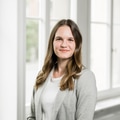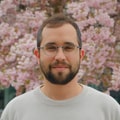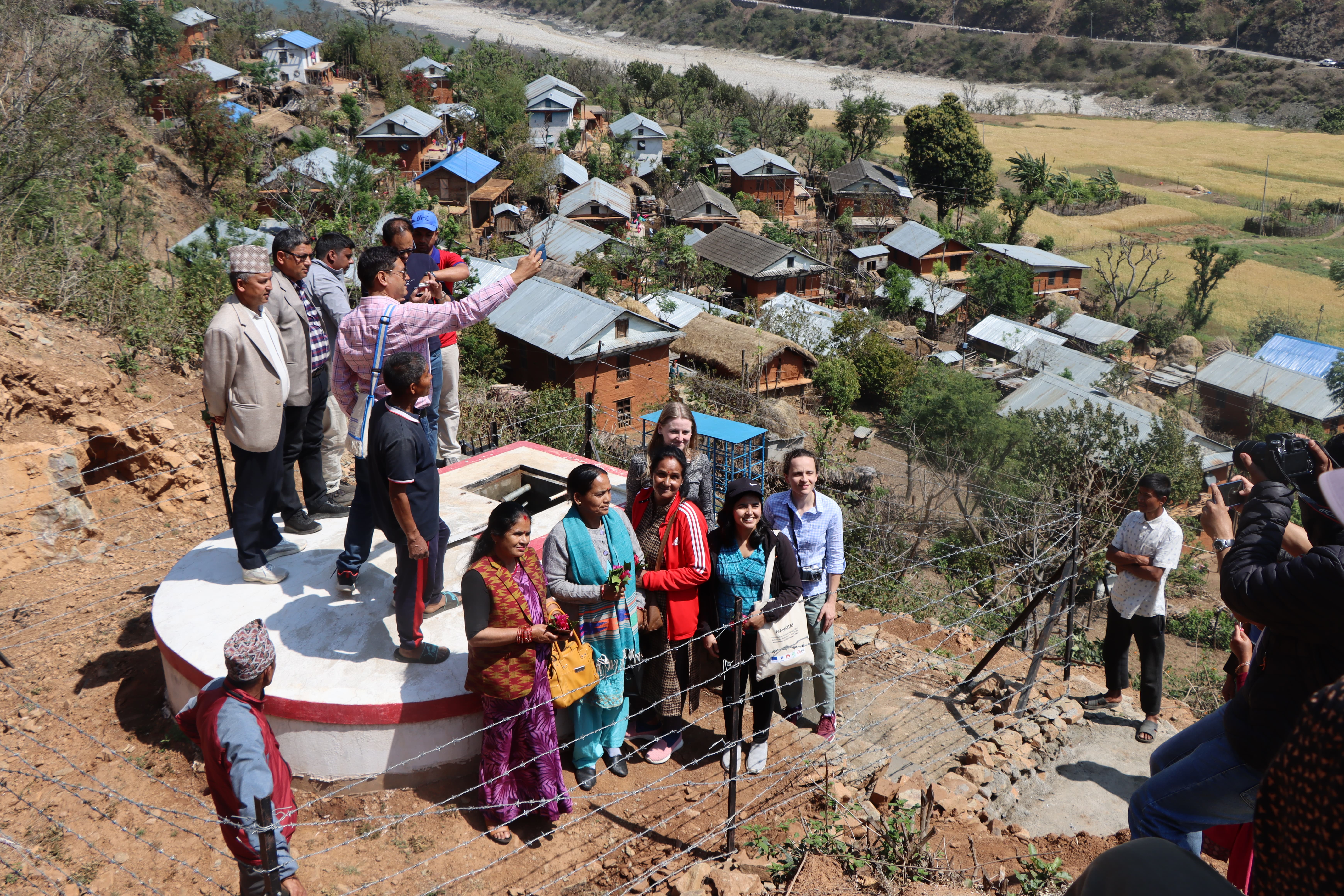From Chad and Colombia, two participants tell all about the SDG Youth Programme – the perfect way to start working in international cooperation
Julia Bosson and Vasco Ferreira da Costa both work as trainees at international cooperation organisations as participants of the SDG Youth Programme. Julia is a climate policy and energy management advisor at the Institute for Development, Environment, and Energy (IDE-E), and Vasco supports an urban ecological transition programme at urbaplan.
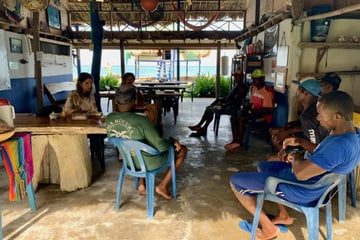
Julia Bosson and Vasco Ferreira da Costa are two of the five selected participants of the SDG Youth Programme in 2022. Julia was recruited as a trainee for the Institute for Development, Environment, and Energy (IDE-E) and Vasco as a trainee for urbaplan. They share their impressions of working in their respective countries, and the challenges and learnings they encountered during their traineeships.
Learn more about the programme
What attracted you most to the SDG Youth Programme?
Julia: For me, the SDG Youth Programme is a complete package that prepares recent graduates for the international cooperation labour market. Field experience is incredibly valuable at this stage of our careers, and very few traineeships offer a combination of working for a Swiss organisation and gaining valuable cultural insights simultaneously. The opportunity to work with experienced coaches in the field helps to address specific issues during the traineeship and to plan future career steps. I get very interested reactions when I tell people about my job and the benefits of the programme – I would definitely apply again if I could!
Vasco: The programme offers a unique opportunity for young professionals to gain a first experience in the field of the SDGs while being mentored. The prospect of being accompanied on this journey was what attracted me most. In addition, the programme offers beneficiaries the opportunity to enrol in courses at cinfo, which can be useful for our future careers in international cooperation.
I have learned to really enjoy [...] that no two days are alike.
Describe a typical day for you as an SDG Youth trainee.
Julia: There really is no typical day for me. I have been travelling for work in the last few weeks. I went to meetings with development banks and ministries in Peru and Ecuador, then found myself in hiking pants and rubber boots, sleeping in hammocks on a trip to the Amazon in Colombia! I have learned to really enjoy the flexibility of my working days and that no two days are alike.
What was the most surprising thing you learned in Chad or Colombia that you previously didn't know or expect?
Vasco: The most surprising thing I learned about Chad is the country’s strong cultural diversity. Its heritage is a mixture of African and Arabic influences and, the country's colonial borders do not coincide with natural or ethnic boundaries, which also explains the diversity within the population.
Julia: What surprised me from the beginning in Colombia was the level of bureaucracy and hierarchy in everyday life, which is much higher than in Switzerland. This can be quite frustrating because it takes a lot of time and energy, but I have learnt to deal with it by being patient, which is an important virtue.
[I was inspired] to develop my own ability to be resilient in the face of difficult situations.
What are the main learnings for you and your personal/professional development (both challenges and pleasant surprises)?
Vasco: The most important thing I learned in Chad was the local’s resilience and adaptability to situations. Despite the challenging economic and political situation in the country, people are determined to find solutions to their daily challenges. Their resilience and determination inspired me to be more patient and tolerant, and to develop my own ability to be resilient in the face of difficult situations.
Julia: I usually work in a very structured and organised way, planning my days in detail and making to-do lists. I got used to a more dynamic work structure in Colombia, because things happen more spontaneously, and I constantly have to be reactive. Although initially feeling overwhelmed, I realised I could take advantage of this flexibility.
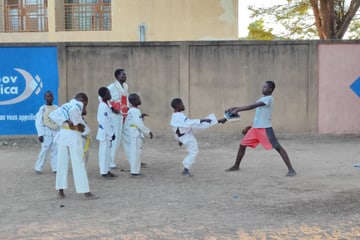
How did you experience head office vs country assignment?
Vasco: Working at the head office gave me insight into the organisation’s broader activities – as urbaplan also operates in the Swiss market – while working in Chad gave me more hands-on experience in implementing specific projects and working directly with local partners. The main difference I encountered was the different organisational cultures, working environments and communication styles between head office and country assignments. Overall, both experiences provided valuable learning opportunities and insights into the organisation’s work.

